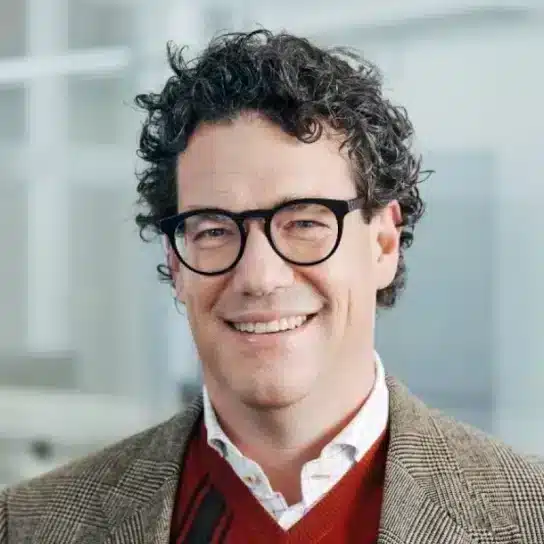How On the crest of the green wave: An interview with Stephan Marty
In conversation with Kris Kobi at Climate17 for Energy Management Magazine, Stephan Marty, Wattstor CEO tells the story of his career over the years, the opportunities and the challenges within the green energy movement, and his ultimate optimism for the sector.
Meet Stephan. In this interview, he shares his view on the status of the energy market, impact of the pandemic, and how he continues to be on the forefront of the green evolution.
You graduated with an MSc in Engineering in Zurich, moved to California, completed an MBA and exchanged a career in GE’s Energy business for leading the way in energy flexibility startups: Kiwi Power and now Wattstor.
What were the defining points of your career, and how did they align with the Renewable Energy landscape?
I think I’ve changed a lot together with the energy industry over the last 20-odd years. I joined the energy industry when it was not “sexy”. You could see a few wind turbines here and there in Europe – but otherwise there was no renewable energy on the horizon. My first job focused on upgrading old coal power stations to be more flexible, and this is already when you can start to see the link with what was about to become my future work. I decided to move to Los Angeles to undertake an MBA at UCLA. There, I had an opportunity to work for a startup “Solar Reserve” – and I learned how to work in a smaller company.
After the 2008 crash, I secured an opportunity to join GE Energy on a rotational leadership programme with the first stint being in London, where we were defining “Smart Grid” – the new hype at that time. Most of my job was to look into the future and see how the next 5 – 10 years were going to shape the new energy economy – wind, smart grid, solar, large gas turbines, distributed energy – we were working hard to get the big tanker that is GE moving more in this green direction. You could see the world changing – but there were obstacles and people who thought differently as well.
How things change…
It is unthinkable now, it was only 2012 when I lived in France, I was chosen to give a Christmas speech around the future of the energy world to GE employees at our gas turbine factory. I talked about the changes towards renewable energy, and how the world had to adapt. Right after my presentation came a renowned professor from a big French University, arguing exactly the opposite point – that things in energy will be the same and that there can never be more than 5% renewables in the grid, because the grid wouldn’t be stable enough to accommodate it. Now we have 50-60-70% renewables in the grid – and we’re not stopping there.
Of course, at the time Renewable Energy was outrageously expensive. Even so, by then we had lots of solar coming in driven by feed in tariffs, so we looked at GE’s gas turbine business, and for us it was clear – it was just a matter of time until renewables will become more prevalent, and the business model will have to change.
Why did you join Kiwi Power, when you had a good, secure career at GE?
I was headhunted to join Kiwi Power and never looked back. It was the best decision I could have made. I left a great company after a 6 year career, where I had a generous package, and took a significant pay cut to do so and never had any regrets. At Kiwi, I was a key part of the team that built a successful company from a start-up, and we were at the forefront of things that were important then and now – Demand Response (now DER Management) and Battery Energy Storage.
My key responsibility was growing the company internationally – we went from 0 to 14 countries outside of the UK by shifting from a direct aggregator to a SaaS business model, while also working on battery storage from 2014 on – with basically no ES around – starting with the Leighton Buzzard project with UKPN. Following that learning, we built the battery storage side of Kiwi from scratch – and at one point we had the biggest battery in the UK – 6MW, which was big then – marking another step towards the green transition. Since then, the price of batteries has come down drastically, the revenue stack has changed, and our strategic focus changed to a software and trading (“optimisation”) offering.
You have decided again to abandon a comfortable CCO position in an established business and lead a startup. Why?
You can see a pattern here (laughs). I was always keen on bringing flexibility to the BTM (Behind The Meter) space, because I believe it’s essential for the new energy system to work. Wattstor’s mission is to empower Commercial and Industrial sites and local energy communities to reduce CO2 and electricity cost – that’s how we’re enabling the wider energy system to go green. If you think forward a few years – batteries will be even cheaper, as well as solar, and you are going to see more price volatility, and dynamic tariffs that follow the supply of renewable energy – historically power stations ramped up when electricity demand increased, such as at half time in football when everyone turned their kettle on.
Right now, electricity demand needs to follow supply – there’s a need to use the energy when sun is shining, wind is blowing etc. Also, with the carbon reduction agenda gaining traction, EVs starting to go main-stream, CSR becoming more important and social movements like Extinction Rebellion, companies are going to be under increasing pressure to be green, and Wattstor is here to help them realise that dream – that’s what our mission and our vision is. We do energy storage as well, we provide the battery system, but the core part of our future offering will be software. We will be the go-to company for agnostic software to optimise any kind of on-site distributed energy resource – tapping into markets and price signals where required. Agnostic is key – we want to give our customers the freedom to connect any asset and select any route to market.
How do you define your personal mission?
Happiness is the most important and hardest thing to get in life. Key part of it for me is to do a job that is fulfilling and serves a purpose. We’re doing something that changes the world. I saw dirty coal power stations – and loved them as an engineer, but it’s just not the future. The green transition is absolutely necessary for our world. In established companies life is constant, like a straight line – it can be a good life, everyone to their own – but life in a start-up is different. It’s a roller coaster, you are on the frontier, you make decisions, it’s more volatile, but because you’re on the front edge, you can make real change. I love it, it is the right thing to do, and it’s exciting.
How has COVID19 impacted the transition to green energy?
In the last two years the climate change agenda has conquered the main political parties – we have a conservative government in the UK pushing 40GW of offshore wind! It is not a green party – it’s great to see that it has reached people’s understanding, and that there’s a political consensus. If you push smarter energy systems, offshore wind etc. – it creates jobs, so boosts economies and you can go green at the same time. It’s a nobrainer really – particularly after COVID.
As soon as COVID came in – you could see a glimpse into the future. We saw how the electrical system is going to operate with a much higher share of renewables in the system, because of lower overall demand – and there were problems – prices dropped to negative in the balancing mechanism and National Grid introduced a new ancillary service – in record time – to cope with too much power in the grid. It became clear that we need to further address balancing the grid as soon as possible. Wattstor is making on-site flexibility available which is a key part of balancing the grid, and when in the future you have a stronger electricity price signal, we will be in a position to use these signals in our decision algorithm on site to the benefit of our customers and the overall grid.
What are the biggest challenges for our sector?
Ultimately, it will be setting the right policies, not doing piecemeal interventions. The UK is actually good at setting the incentives and policy triggers right. The UK energy industry can pick up an opportunity and run with it, finance is plentiful with the right policy support. The biggest risk is that the government will be too slow. Solar is already cost-competitive everywhere, wind not far behind, and we’re clearly moving away from diesel/petrol for cars, which is another major shift, so right now it’s setting clear and simple policies across the field to ensure there’s an incentive to go green. Once policies are in place, there’ll be companies running with them – the entrepreneurial spirit is strong in the UK.
What do you think the foreseeable future of renewable energy is?
The cost of green solutions – solar, wind, EVs, battery energy storage – is falling, and will continue to fall. Renewables will be everywhere and will dominate the electricity supply. There will be a need to address the resulting volatility in the electricity markets and grid constraints.
This is where Wattstor plays its part in the energy transition – by utilising onsite energy resources to proactively face the challenge of balancing the grid in this transition and enable more renewables to be installed. One other key missing piece of the puzzle is long-term energy storage but you can see solutions, such as Hydrogen, appearing on the horizon. Overall, still much more has to change in the coming years to really switch the energy system to a fully carbon neutral one – we have not seen anything yet compared to what is to come. The last 10 years have been outrageous, but the next 10 will easily be more so.
On the crest of the green wave: An interview with Stephan Marty, Wattstor CEO
Author

Jochen Schneider
Managing Director, Germany
With over 25 years of experience in digital energy services, smart energy, and business model innovation, Jochen brings a unique drive and passion to Wattstor. His focus on delivering intelligent energy solutions that balance cost efficiency and sustainability continues at Wattstor. As Managing Director of Wattstor GmbH, Jochen brings the commercial benefits of Price Protect to the German market, working alongside Wattstor’s experienced European team while leading his own.

